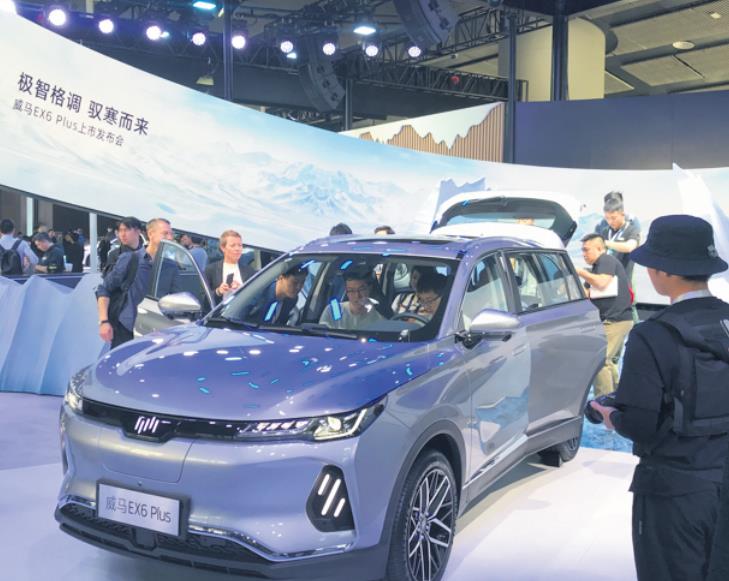Think tank leader boosts optimism, cooperation as NEV sector reshuffles
By Li Fusheng | China Daily | Updated: 2019-12-30 09:03

China's new energy vehicle market is set to reshuffle around 2020, which may wipe out some electric car startups, according to an industry think tank. But he said the segment's long-term prospects are bright.
Chen Qingtai, president of China EV 100, said business is proving difficult for some new energy vehicle makers, especially startups, as they face a sluggish market, dwindling government subsidies and more prudent investors.
Sales of electric cars and plug-in hybrids in November reached 95,000, down 43.7 percent from the same month last year and marking the fifth consecutive month of sliding sales since the government slashed subsidies in late June, according to the China Association of Automobile Manufacturers.
Sales totaled 1.04 million in the first 11 months of the year, up 1.3 percent year-on-year, said the association, adding that the segment is very likely to see the first sales drop in 10 years.
Stories of smart electric cars to challenge those of Tesla's are not an easy sell to investors any more as startups have been mushrooming in the country over the past years.
Chinese startups raised just $783 million as of mid-June 2019, compared with $6 billion for the same period last year, according to Reuters, citing data from PitchBook.
"Companies are seeing their gap widening in brand recognition and sales. Some are struggling and on the verge of bankruptcy," Chen said at a press conference last week in Beijing.
Chen added while some companies may be wiped out, their contribution to the industry shall be remembered. "They brought new ideas into the segment and forced traditional carmakers to start electrification," he said.
Yet Chen is confident in the long-term prospects of the segment because China has not realized motorized mobility.
There are 170 vehicles per 1,000 people in China, compared to around 800 per 1,000 people in the United States, 600 per 1,000 in Japan and the EU, and 450 per 1,000 in South Korea.
"So the current lackluster performance, both in the new energy vehicle segment and the overall market, is a short-term thing. There will be much room for growth after the short-term fall," Chen said.
China is expected to stop its subsidies altogether by the end of 2020, and Chen called on authorities to offer non-financial measures to further stimulate the industry.
"The primary task for them is to stabilize and restore the confidence in the segment," he said.
Chen also said the government should support fundamental studies in such aspects as batteries to break the bottleneck of the segment and help ensure a fair business environment.
"We should allow companies to fight for their share in the market without any form of protectionism regardless of their ownership, nationality and site of registration," he said.
Chen said Chinese companies should strive to cut costs while improving quality of their vehicles, adding that the latter would be even more important.
He suggested carmakers should partner with one another to endure hard times.
He also encouraged investors to be far-sighted as the automobile industry is asset-heavy. "You cannot focus too much on short-term gains. Tesla is 16 years old and has been losing money for 16 years in a row. But it is worth around $70 billion in the stock market, higher than GM and Ford."
























